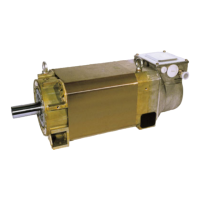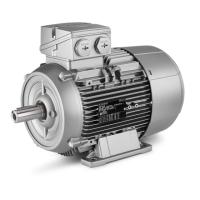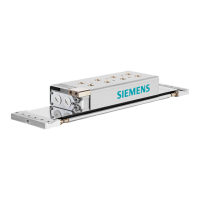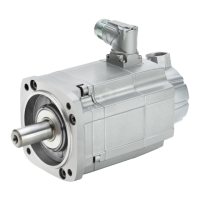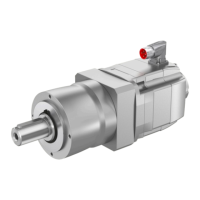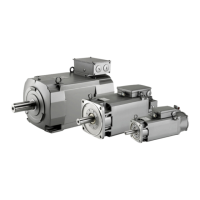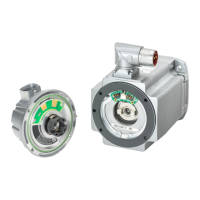5
5.3 Programming the traversing blocks (only in the pos mode, P700 = 2)
5-149
Siemens AG 2013 All Rights Reserved
SIMODRIVE POSMO A User Manual (POS1) – 08/2013 Edition
Contains the time required for the timer. A value of 0 de–activates the
function.
When this position is passed, the bits, specified in the MMPos, are set
and signaled to the master via the feedback signal byte (RMB).
From SW 1.4, the following applies:
When the ”set reference position” function is activated (PSW.9 = 1) or
”flying actual value setting” (PSW.10 = 1), this parameter is the setting
value. The ”signal position” function is then inactive.
Contains a mask, that determines which bits of the start byte (STB) in
the PZD are to be evaluated as additional start bits to start program
blocks.
A program block starts as soon as, in addition to the normal start
enable signals, all of the configured bits are set.
If one of the bits is withdrawn, traversing motion stops and the block is
exited.
A value of 0 de–activates the function.
Contain bit masks, which are OR’d with the status signals (feedback
signal byte, RMB) when a pre–defined event occurs.
These events include:
MMStart: Start of the traversing block
Bits that are activated at the start of a traversing block.
MMStart is reset at the end of block.
MMStop: End of the traversing block (as for ZSW.14)
Bits that are activated at the end of a traversing block.
MMStop is reset at the start of a new traversing block.
MMPos: Passing the signaled position
Bits that are activated when passing the signaled position.
MMPos is reset when a new traversing block is started.
Note:
MMPos is ineffective when the ”set reference position” (PSW.9 = 1)
or ”flying actual value setting” (PSW.10 = 1) function is activated.
Timer value
(P84:28)
Signaling position
(P85:28)
SMStart
(P86:28, high byte)
MMStart
(P86:28, low byte)
MMStop
(P87:28, high byte)
MMPos
(P87:28, low byte)
5 Description of the Functions
02.99
